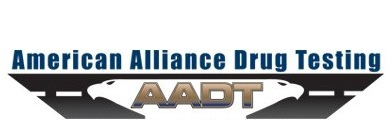AADT Service Agreement Enrollment Application is below
Research and Planning Section
The California Highway Patrol developed the Rotation Tow Program to:
- Facilitate the safe, efficient and rapid removal of disabled vehicles or vehicles involved in collisions from highways served by the CHP.
- Tow vehicles in a manner that is convenient and user-friendly to the motoring public.
- Ensure the safety of the motoring public, the officers of the CHP and tow truck operators.
The Department coordinates the public’s and the Department’s tow services, and integrates the ability of the tow community to provide service through the Tow Service Agreement (TSA). The standards established by the TSA are met by maintaining an open line of communication with the tow industry, and by recognizing the officers’ obligations in the performance of their duties relative to vehicle towing. This allows the Rotation Tow Program to respond to changes to maintain the high safety and service levels of the program. The CHP’s long-term goal is to maintain efficient and responsive tow service.
Tow Service Agreement
California Vehicle Code Section 2424 allows the Commissioner of the CHP to enter into agreements with providers of towing, emergency road, and storage services. These agreements are drafted with the assistance and cooperation of members of the Department, the towing industry, and the general public. The CHP’s TSA allows members of the towing industry to participate in a rotational tow list to equitably distribute service calls from the public through CHP officers.
- The purpose of the TSA is to meet the needs of the public, the towing industry, and the Department.
- The objective is to ensure the public receives ethical and fair business practices on the part of private towing companies utilized by the CHP.
The TSA provides tow operators with clear and concise requirements for acceptance and continued service to the Department. The agreement ensures statewide consistency in the interpretation and enforcement of its terms and conditions. The TSA also ensures that tow operators used by the Department are competent to respond to calls with minimal time delays.
View a copy of the 2012 – 2013 TSA, effective January 1, 2012.
View a copy of the 2013 – 2014 TSA, effective January 1, 2013.
Frequently Asked Questions: Rotation Tow Program
Drug & Alcohol Testing, Conduct and Compliance Language within the TSA
Within the Tow Service Agreement or TSA, there are a number of Elements which deal with alcohol and drug testing.
- The key language is in Element 3. Tow Operators. (H) The operator shall provide proof of enrollment in a CSAT and/or similar CSAT program to the Area officer during the enrollment period. (Page 5)
- Within Element 16. Demeanor and Conduct. (A) While involved in the CHP rotation, tow operators or related business, the tow operator and/or employee(s) shall refrain from any acts of misconduct including, but not limited to, and of the following: (5) Exhibiting any objective symptoms of alcohol or drug use. (a) The operator/tow truck driver shall submit to a preliminary alcohol screening test upon demand of the CHP if an odor or an alcoholic beverage is detected upon their person (Page 24)
- Element 18. Compliance with Law. (A) The tow operator and employees shall, at all times, comply with federal, state, and local laws and ordinances. (B) Any conviction of the operator or employee involving…..a drug related offense, felony driving while under the influence of alcohol or drugs…..should be cause for suspension or removal of an operator/employee, or denial of an operator/employee’s application, or termination of the TSA. (Page 25)
CHP CSAT Forms



